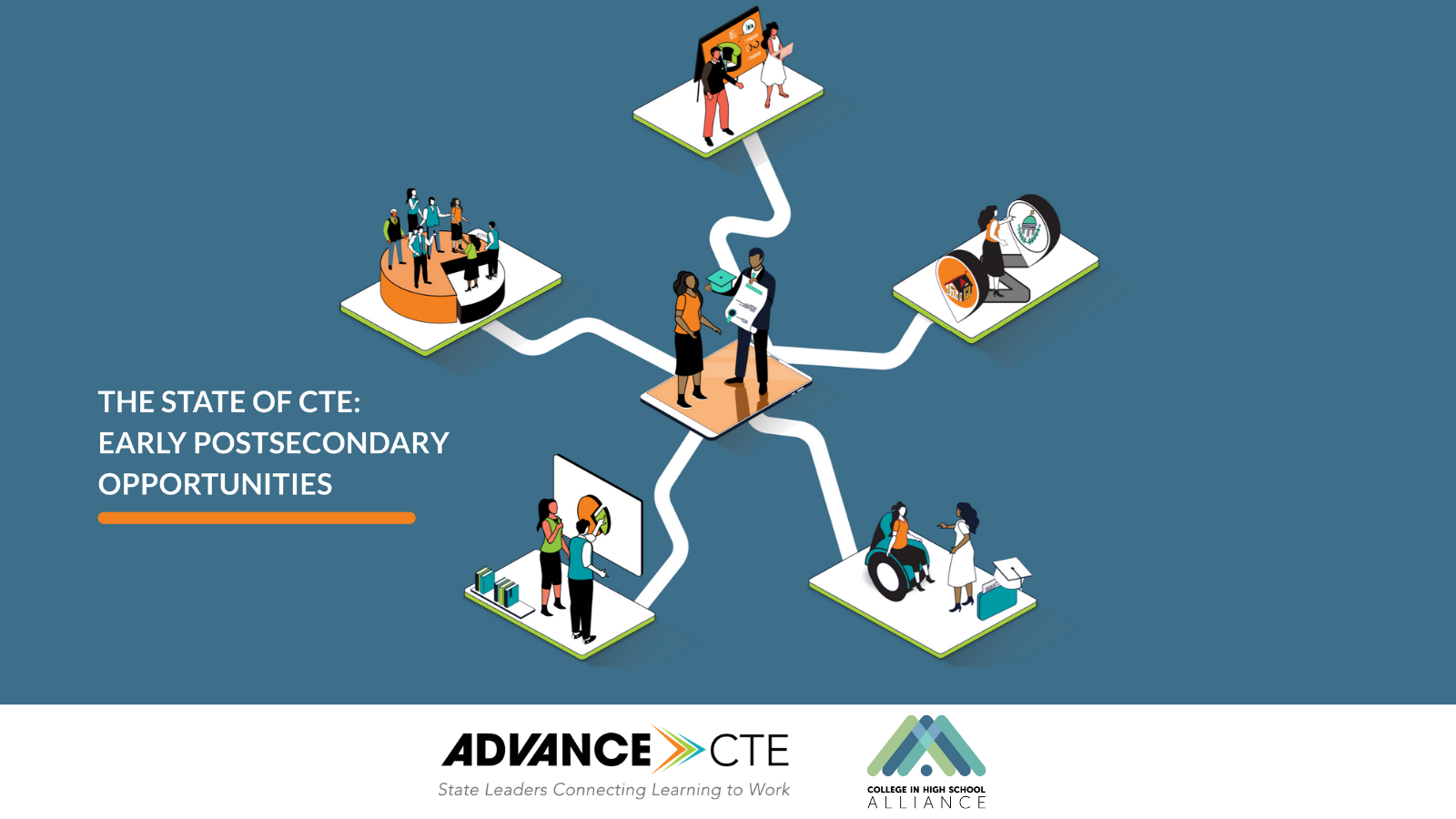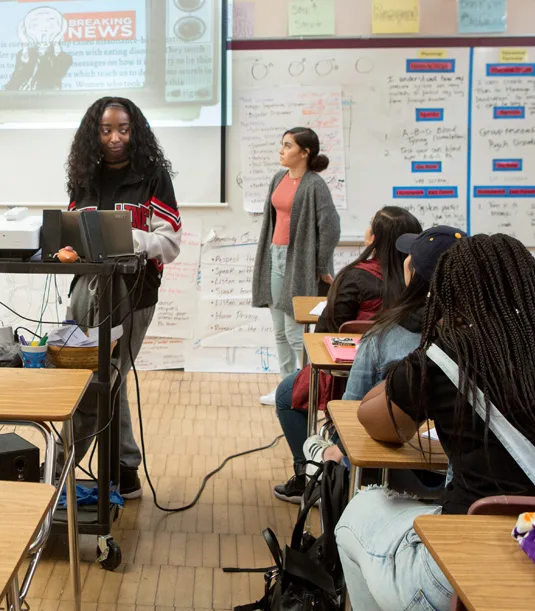The State of CTE: Early Postsecondary Opportunities
How States Are Expanding Equitable Access to Early Postsecondary Opportunities in Career and Technical Education
March, 2022
Every year, more than 5.5 million high school students participate in early postsecondary opportunities (EPSOs) such as dual enrollment, concurrent enrollment, early college high schools, and industry-recognized credential programs. These experiences give learners a powerful head start on college and career success — but equitable access and high-quality implementation remain uneven across states.
The State of CTE: Early Postsecondary Opportunities, produced by Advance CTE in partnership with the College in High School Alliance (CHSA), examines how states are using policy and practice to expand equitable access to EPSOs within Career Technical Education (CTE). Drawing on a national survey of State CTE Directors, the report identifies key challenges and opportunities for ensuring that all learners can benefit from early college credit pathways.
Key Findings
-
Expanding Equitable Access Is a Top Priority
-
87% of states report expanding EPSOs as a top priority, but fewer than 30% believe access is “mostly” or “very” equitable.
-
Common barriers include entrance requirements, lack of awareness, and inconsistent funding across districts.
-
States like Maryland and New Hampshire are using statewide tuition-free models and equity-focused investments to increase participation.
-
-
More Learner Supports Are Needed
-
Few states provide statewide advising or navigation supports; most rely on local implementation.
-
Programs like Maine’s Bridge Academy show the power of dedicated supports to help first-generation and low-income students succeed.
-
-
Data Transparency Is Lacking
-
Most states collect enrollment and outcomes data for CTE learners, but few disaggregate results by race, income, or disability status.
-
Public reporting — such as dashboards in Indiana, Kentucky, and Maryland — is key to accountability and improvement.
-
-
Credit Transfer Remains a Major Barrier
-
71% of states have articulation agreements, but few guarantee seamless transfer.
-
States like Florida, Delaware, and South Dakota are aligning EPSOs to CTE programs of study to ensure credits count toward degrees and credentials.
-
-
Teacher Shortages Limit Program Growth
-
Recruiting and retaining qualified EPSO instructors — who must often meet both K–12 and college-level credentialing requirements — remains one of the biggest obstacles.
-
Flexible licensure policies, tuition assistance, and industry-aligned pathways can help build the concurrent enrollment instructor pipeline.
-
Why It Matters
CTE-focused early postsecondary opportunities prepare students to earn meaningful college credit, attain industry-recognized credentials, and enter the workforce with confidence. States that intentionally align these programs see stronger returns on investment — including higher graduation and college completion rates, particularly among students of color and those from low-income backgrounds.
By adopting equitable policies, strengthening data systems, and investing in instructor capacity, states can ensure that every learner’s skills are counted, valued, and portable — the foundation of Advance CTE’s vision for a high-quality CTE ecosystem.
Recommendations for States
-
Identify and remove financial and admissions barriers to EPSOs.
-
Invest in learner advising and statewide navigation supports.
-
Improve disaggregated data collection and public reporting.
-
Expand articulation agreements to guarantee seamless credit transfer.
-
Incentivize and support qualified CTE EPSO instructors.
About the Partners
Advance CTE is the national nonprofit representing state Career Technical Education leaders, advancing policies that connect learning to work.
The College in High School Alliance (CHSA) is a coalition advocating for equity and quality in college in high school programs nationwide.


